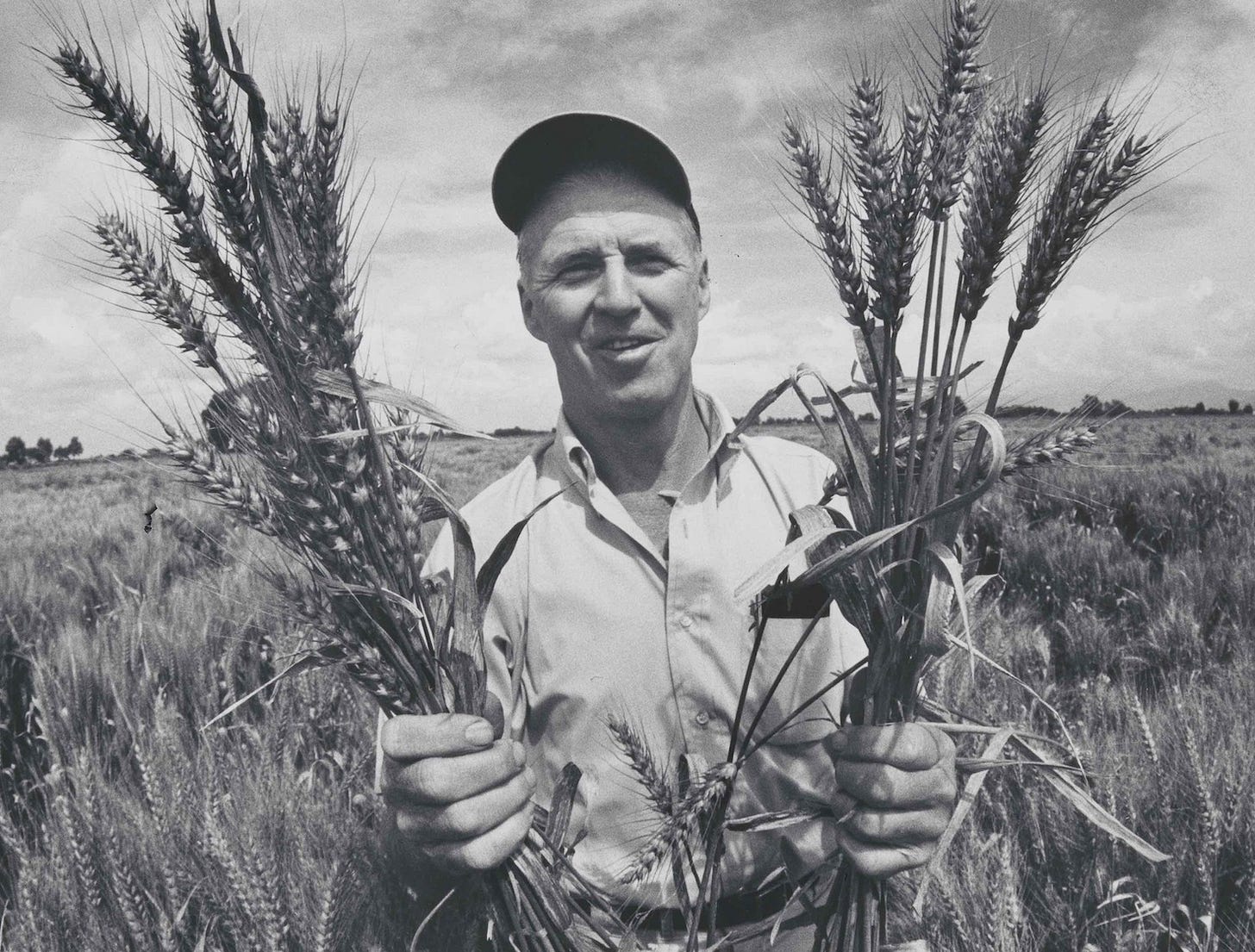Sharing vs Sparing
An Introduction to the Foundational Argument on How We Feed the World Without Destroying the Planet
By producing more food per unit of cultivated area, more land is available for other uses, including recreation and wildlife.
Norman Borlaug, father of the Green Revolution
Man's attitude toward nature is today critically important simply because we have now acquired a fateful power to alter and destroy nature. But man is a part of nature, and his war against nature is inevitably a war against himself.
Rachel Carson, Silent Spring
Agriculture is the greatest cause of destruction of nature ( biodiversity loss, deforestation, desertification, aquifer depletion, soil erosion, etc), and also the reason why we can all eat. It is my personal conviction that “How do we feed the world without destroying nature?” is one of the most difficult problems we face, and a particularly lumpy part of the gordion knot others call the polycrisis of food, water, soil, nature, biodiversity, and civilization. How we solve that problem is a decades-old argument, known as the sharing vs sparing issue.
Sharing: The idea that we need to produce food in a way that shares land and resources with biodiversity or nature, even if that means compromising on efficiency.
Sparing: The idea that we need to produce food as intensively as possible, with as much efficiency on land as possible, as this allows us to “spare” land for nature and biodiversity.
To break this down as simply as I can, those who advocate for the sharing side note that all methods of sparing destroy the planet, even if they produce food more intensively, whereas those who advocate for the sparing side contend that sharing cannot feed people. The always-worth-reading Fred Pearce wrote a lovely summary of the argument for Yale 360 a few years ago, but there is a lot to unpack.
Thomas C Mann’s The Wizard and the Prophet is an entire book about the two great scientists who kicked this argument off in the mid 20th century, Norman Borlaug and William Vogt. Borlaug, of course, is the nobel peace prize winner and father of the green revolution, and is known as the man who prevented a billion people from starving to eath. Vogt is less well known popularly, but his ideas and writing greatly influenced the environmental movement, as he asserted that unless humanity undergoes significant reductions in consumption and imposes limits on population growth, it will inflict irreversible damage upon the Earth's ecosystems. Ehrlicht’s Population Bomb traces its genealogy to Vogt, as does the modern climate and environmental movement, from the concept of donut economics and planetary boundaries to the 30x30 movement.
My next set of publications will delve into what sharing and sparing get wrong and what they get right. Then I’m going to show how regenerative systems synthesize the argument, and can solve the fundamental problem. Finally, I’ll reveal the enterprises i’ve been working on in stealth that build on these foundational concepts to both feed people and heal oceans.
Thanks for reading Humans: Keystone Species! Subscribe for free to receive new posts and support my work, and please share as widely as you are willing.





I’m glad I have found you! I’m just in the middle of The wizard and the prophet, what a great read, and my next post is to be about farming if I can ever get around to finishing it. Suffice to say I find this whole subject utterly fascinating and look forward to reading the rest of your posts